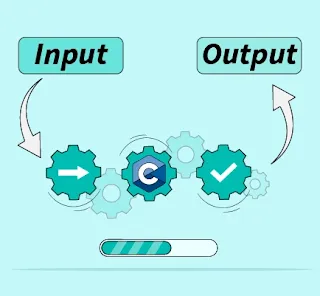Mastering Input/Output in C Language
Welcome to Himani Kashyap’s Blog! In today’s post, we’re diving deep into a fundamental aspect of programming in C: input and output. Understanding how to handle input and output (I/O) operations is crucial for any C programmer, as these operations form the backbone of most applications. In this guide, we'll explore how to write input/output statements in C language, providing clear examples and explanations to ensure you grasp these concepts thoroughly.
Introduction to Input/Output in C Language
In C, input/output operations are managed through the standard library, which provides a set of functions for reading from and writing to various data streams. The most common streams are the standard input (stdin), standard output (stdout), and standard error (stderr). Mastering these operations allows you to interact with the user, process data, and debug your programs efficiently.
Why Input/Output Operations Matter
Input/output operations are essential for:
- User Interaction: Allowing users to provide input to your program and view the results.
- Data Processing: Reading data from files or other sources, processing it, and writing results.
- Debugging: Printing debug information to understand the program’s behavior.
Basic Input/Output Functions in C
C provides several functions for handling input and output operations. Here’s a breakdown of the most commonly used functions:
1. printf - Output to Standard Output
The printf function is used to print data to the standard output (usually the console). It allows for formatted output, which means you can control how the data is displayed.
Syntax:
int printf(const char *format, ...);
Example:
#include <stdio.h>
int main() {
int age = 25;
printf("I am %d years old.\n", age);
return 0;
}
In this example, %d is a format specifier that tells printf to expect an integer value. The \n denotes a newline character, which moves the cursor to the next line.
2. scanf - Input from Standard Input
The scanf function reads input from the standard input (usually the keyboard) and stores it in the provided variable(s).
Syntax:
int scanf(const char *format, ...);
Example:
#include <stdio.h>
int main() {
int age;
printf("Enter your age: ");
scanf("%d", &age);
printf("You are %d years old.\n", age);
return 0;
}
In this example, %d is used again as a format specifier to read an integer value. The & operator is used to pass the address of the variable where the input will be stored.
3. fprintf and fscanf - File I/O
For file operations, fprintf and fscanf are similar to printf and scanf, but they work with file streams.
Syntax for fprintf:
int fprintf(FILE *stream, const char *format, ...);
Syntax for fscanf:
int fscanf(FILE *stream, const char *format, ...);
Example:
#include <stdio.h>
int main() {
FILE *file = fopen("example.txt", "w");
if (file != NULL) {
fprintf(file, "Hello, File!\n");
fclose(file);
}
return 0;
}
In this example, fopen is used to open a file in write mode ("w"), fprintf writes to the file, and fclose closes the file stream.
4. fgets and fputs - Reading and Writing Strings
fgets and fputs are used for reading and writing strings to files or standard I/O.
Syntax for fgets:
char *fgets(char *str, int n, FILE *stream);
Syntax for fputs:
int fputs(const char *str, FILE *stream);
Example:
#include <stdio.h>
int main() {
FILE *file = fopen("example.txt", "r");
char buffer[100];
if (file != NULL) {
while (fgets(buffer, sizeof(buffer), file)) {
printf("%s", buffer);
}
fclose(file);
}
return 0;
}
Here, fgets reads a line from the file and stores it in buffer, which is then printed using printf.
Advanced Input/Output Techniques
1. Error Handling
Handling errors during I/O operations is crucial for robust programs. C provides functions like perror and strerror to help with error reporting.
Example:
#include <stdio.h>
#include <errno.h>
#include <string.h>
int main() {
FILE *file = fopen("nonexistent.txt", "r");
if (file == NULL) {
perror("Error opening file");
}
return 0;
}
In this example, perror prints a description for the error code in errno.
2. Binary I/O
For handling binary data, C provides fread and fwrite functions.
Syntax for fread:
size_t fread(void *ptr, size_t size, size_t count, FILE *stream);
Syntax for fwrite:
size_t fwrite(const void *ptr, size_t size, size_t count, FILE *stream);
Example:
#include <stdio.h>
int main() {
FILE *file = fopen("binary.dat", "wb");
int data = 1234;
if (file != NULL) {
fwrite(&data, sizeof(data), 1, file);
fclose(file);
}
return 0;
}
Here, fwrite writes an integer in binary format to a file.
Conclusion
Understanding how to write input/output statements in C language is fundamental to building interactive and data-driven applications. From basic functions like printf and scanf to more advanced techniques involving file handling and error management, mastering these operations equips you with the tools needed for effective C programming.
By practicing these functions and experimenting with different I/O scenarios, you’ll gain confidence and expertise in handling user interactions and data processing in your C programs. Happy coding!
For more programming tips and tutorials, stay tuned to Himani Kashyap’s Blog. Feel free to leave comments or questions below, and don't forget to check out our other posts for more insights into C programming and beyond!




.jpg)
0 Comments